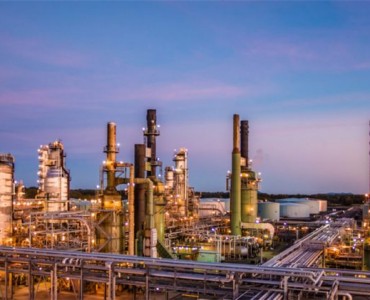While Bahrain has taken promising measures to diversify its economy, the continued oil price slump means more work will need to be done in order for the Kingdom to achieve fiscal, environmental and resource sustainability, a report said.
Despite a slight boost after hosting the Formula One Grand Prix in April, Bahrain’s economic growth in 2015 as a whole is expected to slow to 2.7%, down from 4% last year, added the report entitled Economic Insight: Middle East Q2 2015 produced by Cebr (Centre for Economics and Business Research), ICAEW’s partner and economic forecaster.
Commissioned by ICAEW, the report provides a snapshot of the region’s economic performance.
Given that 90% of government revenues come from oil and gas, Bahrain will be severely affected by the drop in oil prices, the report noted.
Over the next three years, GCC economies will need to generate substantial growth from non-oil sectors. Infrastructure spending in Bahrain should prove to be a source of growth for the Kingdom and tourism is another sector that offers promise to its diversification efforts.
Bahrain saw international tourist arrivals rise by 14% in 2013, with tourism receipts standing at close to 6% of GDP – the highest of the GCC economies.
With lower oil prices justifying fuel subsidy reductions, since diminishing government revenue will create a more pressing need to limit spending, Bahrain now plans to reduce subsidies for its expat population of 1.3 million. Subsidies on fuel, electricity, water and meat will be phased out, with cash payments introduced to reduce the burden on Bahraini nationals.
Scott Corfe, ICAEW economic adviser and associate director at Cebr said: “Bahrain is on the right path for diversifying its economy, but with lower oil prices here to stay, more action needs to be taken. Reducing subsidies is a step in the right direction as this will help reduce the strain on public finances. Also, if fuel subsidies are removed during a period of subdued oil prices, the inflationary impact will be felt less sharply by the population.”
It is not just fiscal sustainability that will be a priority for the GCC over the coming years; environmental sustainability is also crucial. GCC countries currently have some of the highest rates of carbon dioxide emissions in the world. While government-backed initiatives to promote environmentally-friendly business practices are being implemented, these alone will not sufficiently lower per capita CO2 emissions.
The report outlines the need for the business community to self-regulate – and for action to be taken at industry level to help curb the GCC’s carbon footprint. It also highlights the role of the accountancy profession in helping modify business’ behaviour by setting benchmarks. It notes that governments or environmental ministries in the region can then use this approach to rank companies within a particular industry in terms of their carbon footprint, which in turn could encourage underperformers to re-evaluate their operations without actually imposing regulations.
Resource sustainability is another important consideration for the sustainability of economic activity in the region. With population growth in the GCC region expected to expand at a rate above the world average, accompanied by rapid urbanisation, many countries will struggle to meet water demands. Since the GCC countries place substantial pressure upon their internal water resources for domestic and industrial use, in the interests of long-term, sustainability, there is an urgent need for a region-wide water management strategy.
Michael Armstrong, FCA and ICAEW regional director for the Middle East, Africa and South Asia (MEASA), said: “The great fall in the global oil price need not reduce the impetus to use energy efficiently. Working towards sustainable economic growth will be an absolute priority in the Middle East over the coming years.”
“Many of the GCC countries are now recognising the urgency of the situation to secure their future development and Bahrain is certainly on the right path with its ‘National Energy Efficiency Strategy’ seeking to reduce electricity consumption by 20% by 2030,” he added.
Report highlights:
• Lower oil prices will have a greater impact on Saudi Arabia’s economic growth in the medium rather than the short term. The Kingdom has confirmed that for the remainder of 2015, government expenditure on education, healthcare, transport, and water infrastructure will remain a priority. However, adjustments lie further ahead as oil prices are expected to remain low for some time, financial reserves will gradually be depleted.
• The UAE’s GDP growth in 2015 should reach 3.9% thanks in part to its diversifying strategy. In the last couple of years, the country has also invested greatly in setting up satellite campuses of world-renowned educational institutions such as New York University (NYU). This will not only draw international, tuition fee-paying students to the country but it should also boost the local labour force by giving Emirati populations access to world-class education.
• Qatar’s GDP is expected to grow 7.1% over 2015 as the country is less dependent on its hydrocarbons resources than many of its fellow GCC members and the continued investment in ambitious projects such as Education City as well as less stringent restrictions on foreign firm ownership will support growth also.
• Despite Kuwait’s comparatively low fiscal break-even oil price, the country’s economy grew by just 1.4% in 2014. In 2015, the country’s GDP is expected to grow to 1.8%, fuelled by a sustained level of spending on job creation and youth development. In addition to this, the Capital Markets Authority’s plans to further align the regulations of the Kuwaiti stock exchange with international norms are expected to improve the country’s investment environment.
• Oman’s economy is expected to expand by 3.5% in 2015. Helping economic growth will be infrastructure investment into ports, roads, and railways. Assuming a deal with Iran is reached this year, the country also stands to gain from welcoming an international expansion of Iranian businesses.
Source: Trade Arabia












